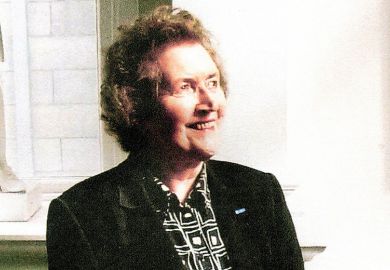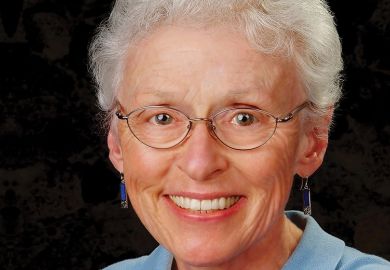A leading management theorist who applied the concept of “disruptive innovation” to higher education and healthcare as well as business has died.
Clayton Christensen was born in Salt Lake City, Utah in 1952 and studied economics at Brigham Young University (1975), although his degree was interrupted by two years’ missionary work in Korea. He then secured a Rhodes scholarship for an MPhil in applied econometrics at the University of Oxford (1977) and went on to Harvard Business School for an MBA (1979). After gaining first-hand experience of business as a strategy consultant and running start-ups, he returned to Harvard for a doctorate in business administration (1992) and remained there for the rest of his career. He gained tenure in 1998 and was appointed Kim B. Clark professor of business administration in 2001.
One of the most influential business theorists of his era, Professor Christensen first developed his crucial concept of “disruptive innovation” in The Innovator’s Dilemma: When New Technologies Cause Great Firms to Fail (1997). He followed this up with The Innovator’s Solution: Creating and Sustaining Successful Growth (2003) and Seeing What’s Next: Using the Theories of Innovation to Predict Industry Change (2004), books which distilled deep research into practical guidance for managers and other decision-makers trying to cope with the major challenges of industrial change. He would later summarise his key insights in The Innovator’s DNA: Mastering the Five Skills of Disruptive Innovators (2011).
Himself long plagued by ill health, Professor Christensen also applied what he had learned from business to sectors rather closer to home – education and healthcare – in Disrupting Class: How Disruptive Innovation Will Change the Way the World Learns (2008), The Innovator’s Prescription (2009) and The Innovative University: Changing the DNA of Higher Education from the Inside Out (2011).
“Clayton was one of very few business academics who truly changed practice,” said Rebecca Henderson, John and Natty McArthur university professor at Harvard. “‘Disruptive innovation’ is now firmly in the managerial lexicon, and I suspect business people will be using it – and thinking about it – long after we are all dust.
“He had an ability that in my experience is relatively rare in academia: he combined leading-edge thinking with the energy and drive necessary to take his ideas to practice. He was also, as everyone who ever met him can attest, one of the world’s great human beings.”
Professor Christensen died on 23 January and is survived by his wife Christine, five children and nine grandchildren.
Register to continue
Why register?
- Registration is free and only takes a moment
- Once registered, you can read 3 articles a month
- Sign up for our newsletter
Subscribe
Or subscribe for unlimited access to:
- Unlimited access to news, views, insights & reviews
- Digital editions
- Digital access to THE’s university and college rankings analysis
Already registered or a current subscriber?








